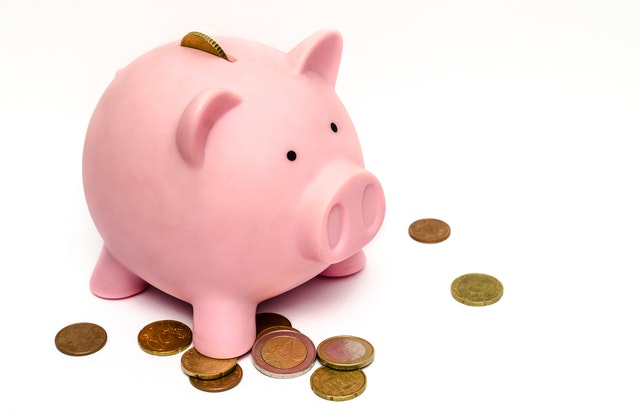Personal finance can be like a rollercoaster. Money left over in the checking account one month, an onslaught of unexpected expenses the next month. 3 or 4 good months in a row followed by 1 or 2 not so good months. This is completely normal.
My last several months have followed almost this exact trajectory. I had 4 really good months in a row where it seemed like I had almost no unexpected or abnormal expenses. Then in late June and early July, the wave of expenses came to shore.
- Vet bill: $550
- Tenant moved out of rental, lost rent for partial month vacancy: $1,350
- Routine repairs after tenant move out: $1,300
- DMV registration: $200
- Car repair: $250
- Total: $3,650
After it was all said and done, I had $3,650 worth of expenses I didn’t have the month before!
My dog is a little over 6 years old. On average, he’ll have one or two good sized vet bills every year. Usually between $300-$600. Based on my dogs past history, I know these bills are coming, I just don’t know when.
The tenant who moved out had been in the house for 2 solid years. They were great tenants; always paid on time and kept the house in good condition. Ideally I’d like to have tenants stay over 3 years, but 2 years is still good. Nothing out of the ordinary.
My property manager found a new tenant fairly quickly but the house was still vacant for over 20 days. That cost equaled $1,350. Plus, there were some routine repairs that needed to be made to prep the house for the next resident, another $1,300. Not a good month for that property, but again, nothing outside the norm for a rental property.
I’ve been driving since I was 16 so I knew the DMV registration was coming. It’s irritating to pay it, but not a surprise expense by any means.
My car is very reliable. It gets me from point A to point B just fine and rarely has an issue. Now and then though, the car requires a minor repair. I know that once or twice a year I’m going to have a car repair bill for around this amount. This month it happened to be for $250.
If I had a bad month like this 10 years ago, it would have put me in credit card debt. And it probably would have taken several months to pay it off.
What gets people into financial trouble is not the expenses themselves, but how we respond to them. And the best response is preparation.
It took me many years, but I’ve learned that we can smooth out the financial rollercoaster. The simple act of putting the same amount of money aside each month for the inevitable expenses, almost completely eliminates the shock and negative consequences of those expenses when they come.
It’s boring, but a little planning goes a long way. Think of it as billing yourself monthly. When you invest, you pay yourself first. When you save for future expenses, you are simply billing yourself before it happens.
Then, when the expense occurs, you take the money from your savings account and pay for it. If you consistently bill yourself first every month, you will very likely have money in reserves.
This is not to be confused with an emergency account. An emergency account is more for the really, really big things like a job loss, injury, or a huge home repair. This account is more for the routine expenses that inevitably occur every year. Usually less than a few thousand dollars.
Here’s a sample chart using even numbers to illustrate how it works. We’ll go January through December to show a full year cycle.
| Month | Amount Saved for Future Expenses | Actual Expenses | Total at End of Month |
| January | $500 | $100 | $400 |
| February | $500 | $0 | $900 |
| March | $500 | $0 | $1,400 |
| April | $500 | $500 | $1,400 |
| May | $500 | $0 | $1,900 |
| June | $500 | $0 | $2,400 |
| July | $500 | $1,200 | $1,700 |
| August | $500 | $0 | $2,200 |
| September | $500 | $0 | $2,700 |
| October | $500 | $0 | $3,200 |
| November | $500 | $2,500 | $1,200 |
| December | $500 | $300 | $1,400 |
| End of Year Total | $6,000 | $4,600 | $1,400 |
In the chart, we saved $6,000 towards those likely expenses for the year. Every month was the exact same: automatically deposit $500. Even though we had $4,600 worth of expenses, we still had $1,400 left over at the end of the year.
Just as importantly, there was no time in the year where we had negative cash in this account. Every bill was paid for on time using this simple method.
I like excitement when it comes to vacations and sports. I don’t like excitement when it comes to expenses. Expenses + Excitement = Unwanted Financial Stress.
Same boring bill every month. Some months you’ll have no expenses, other months you’ll need to pull from your savings. Nothing exciting, just consistent saving to smooth out the year. Boring is good.
How do you handle the routine unexpected expenses?





